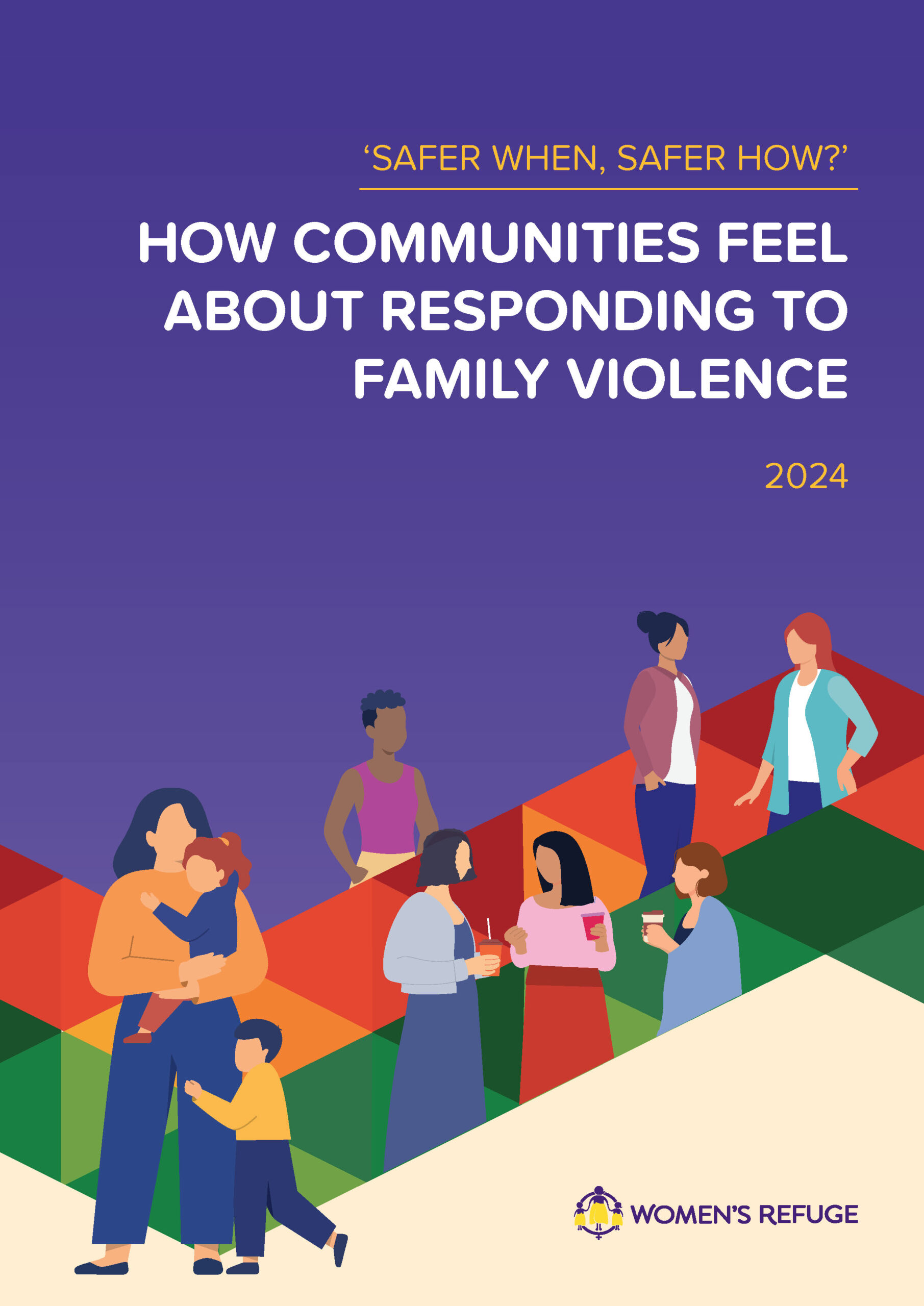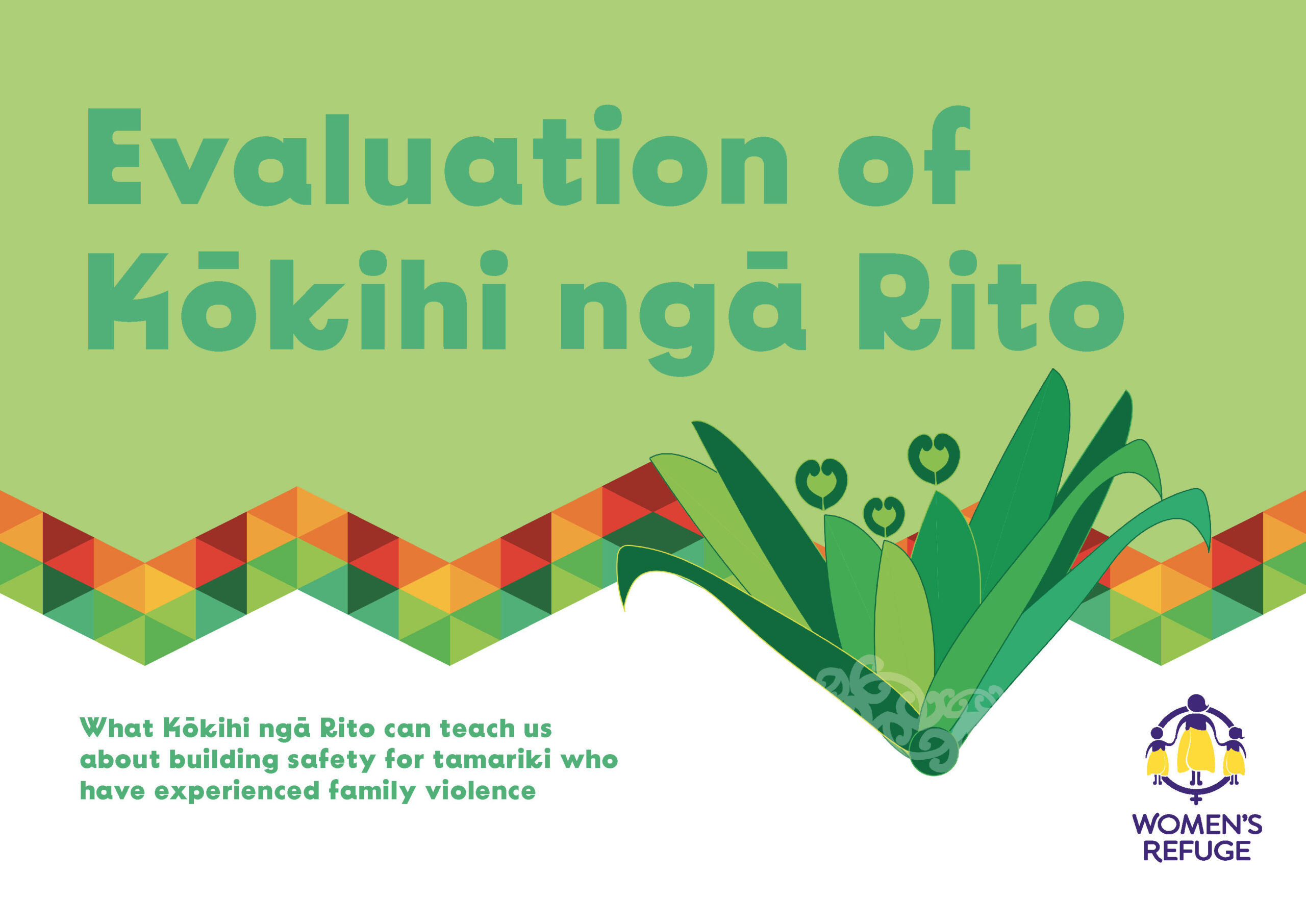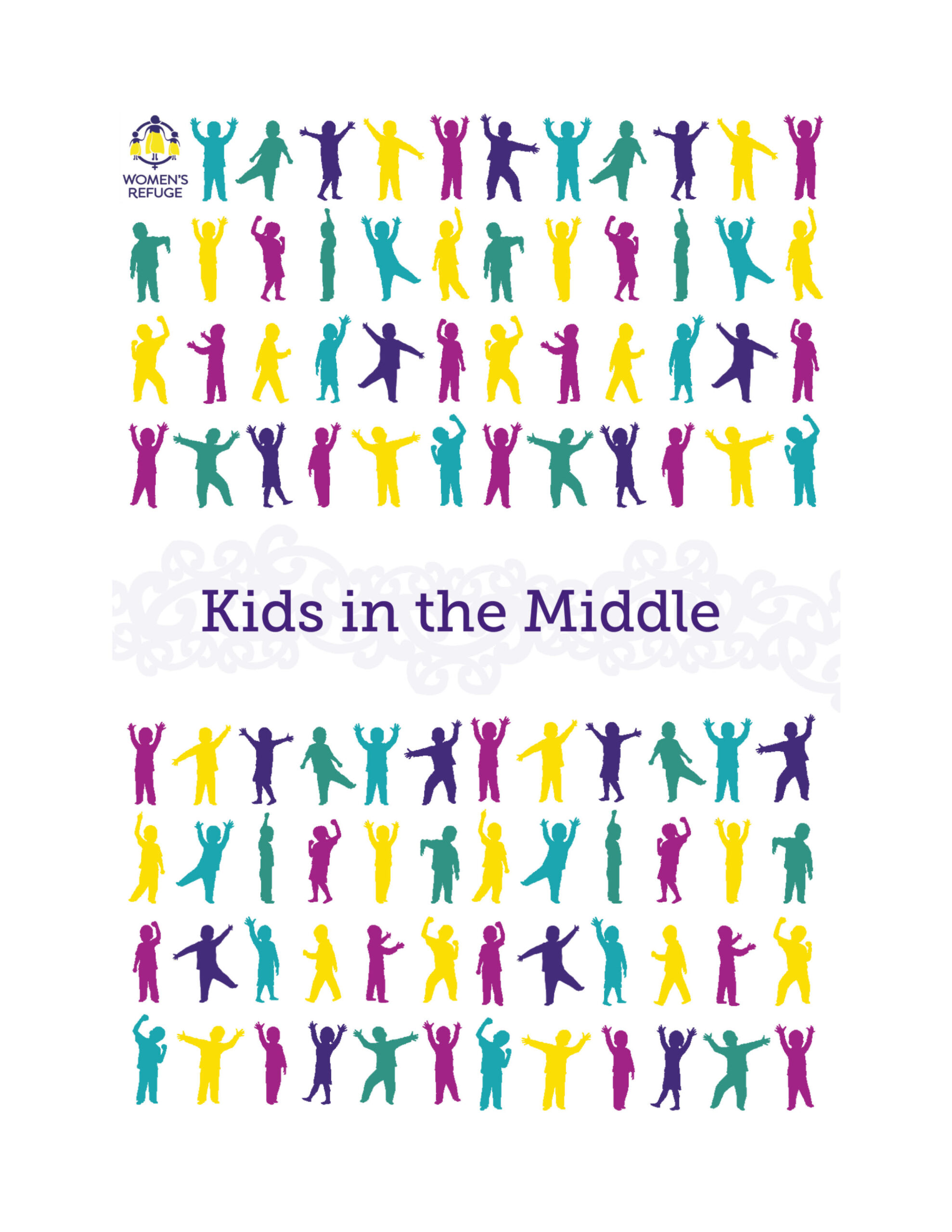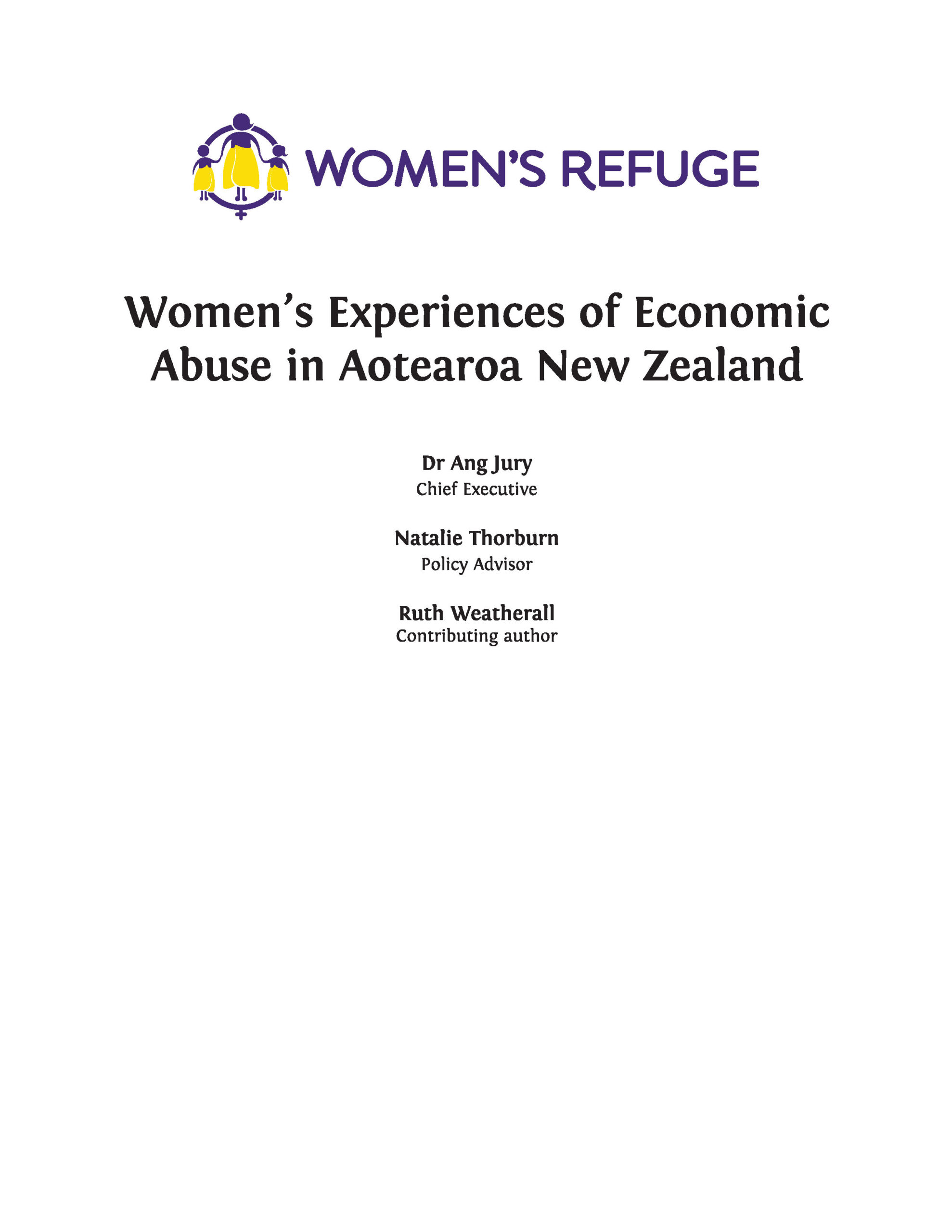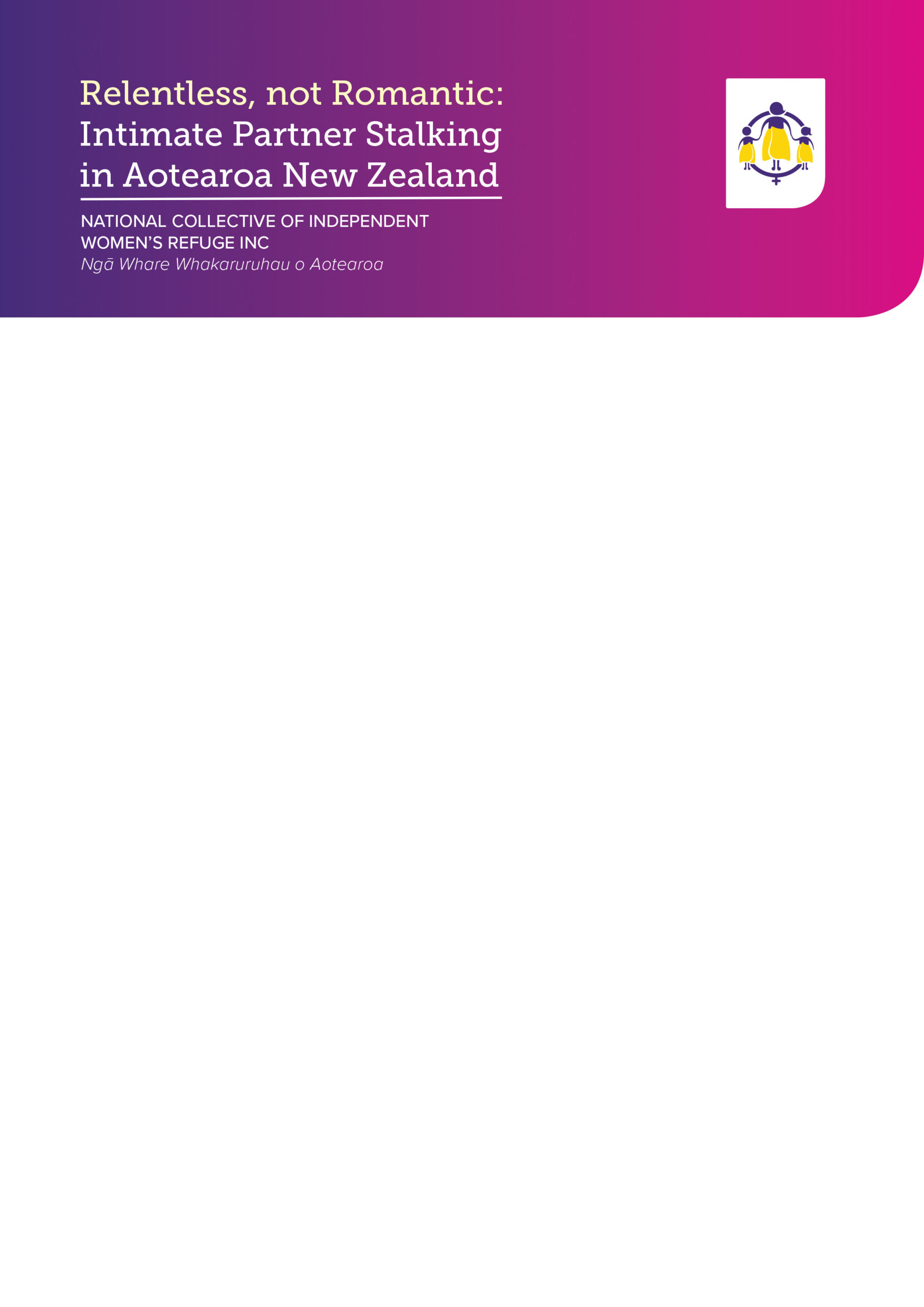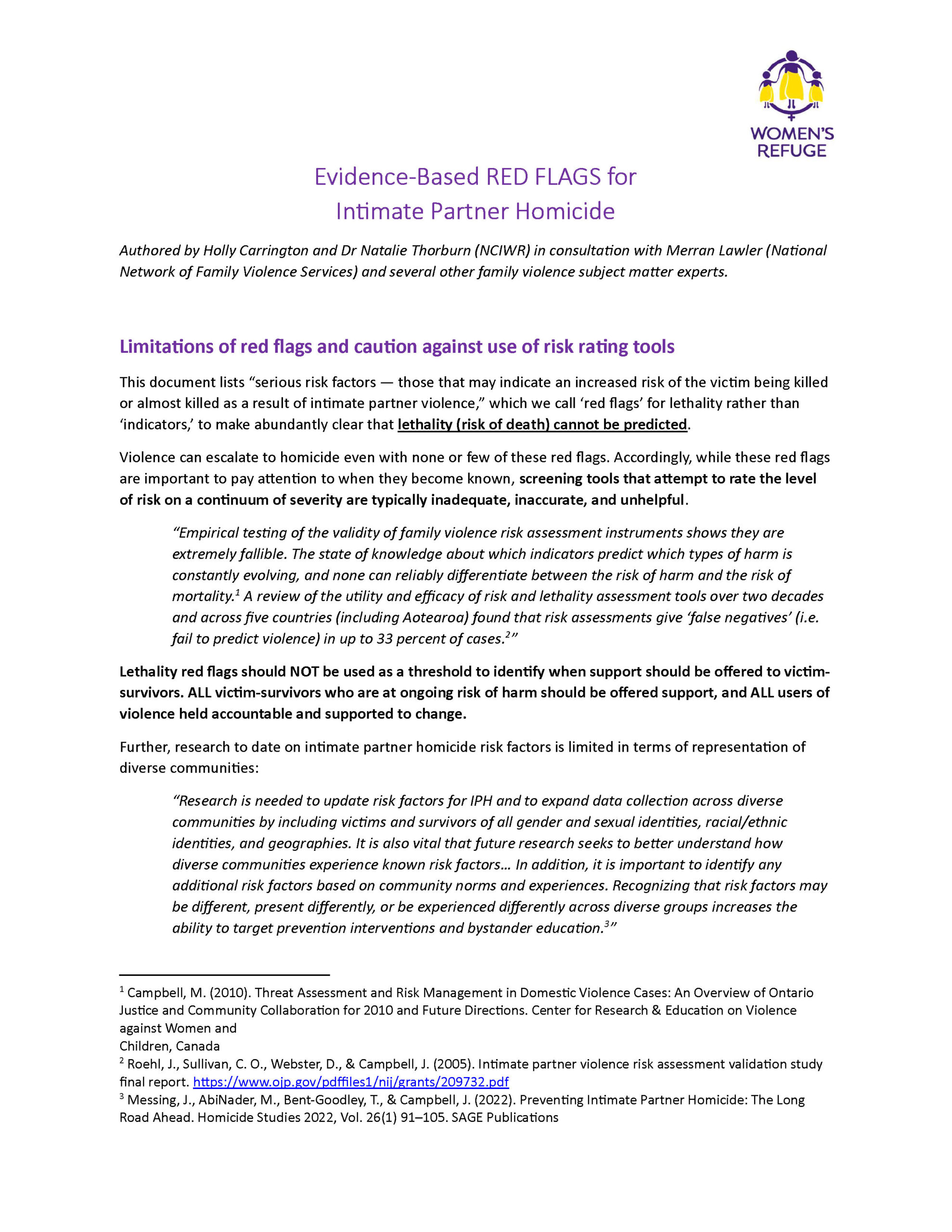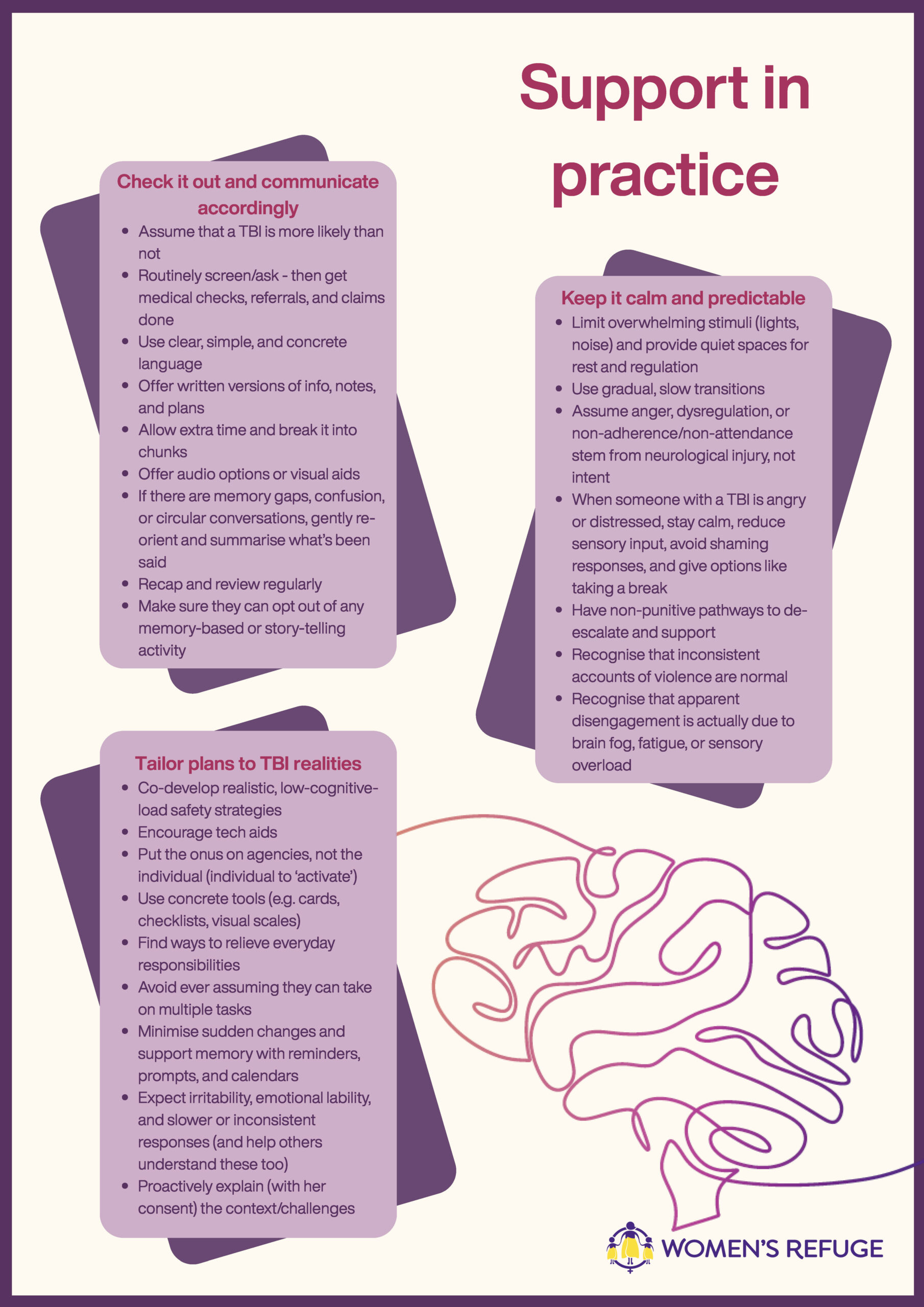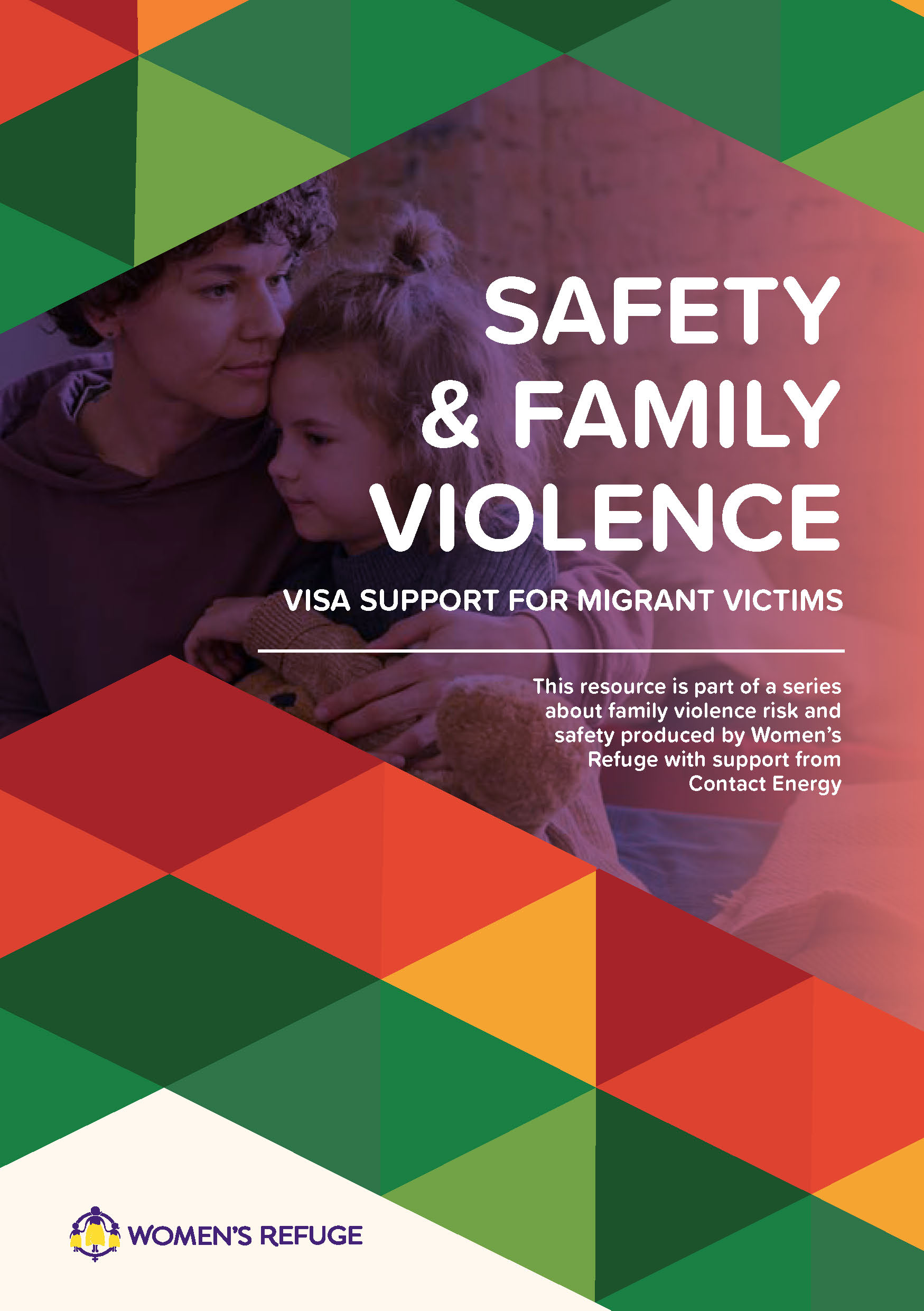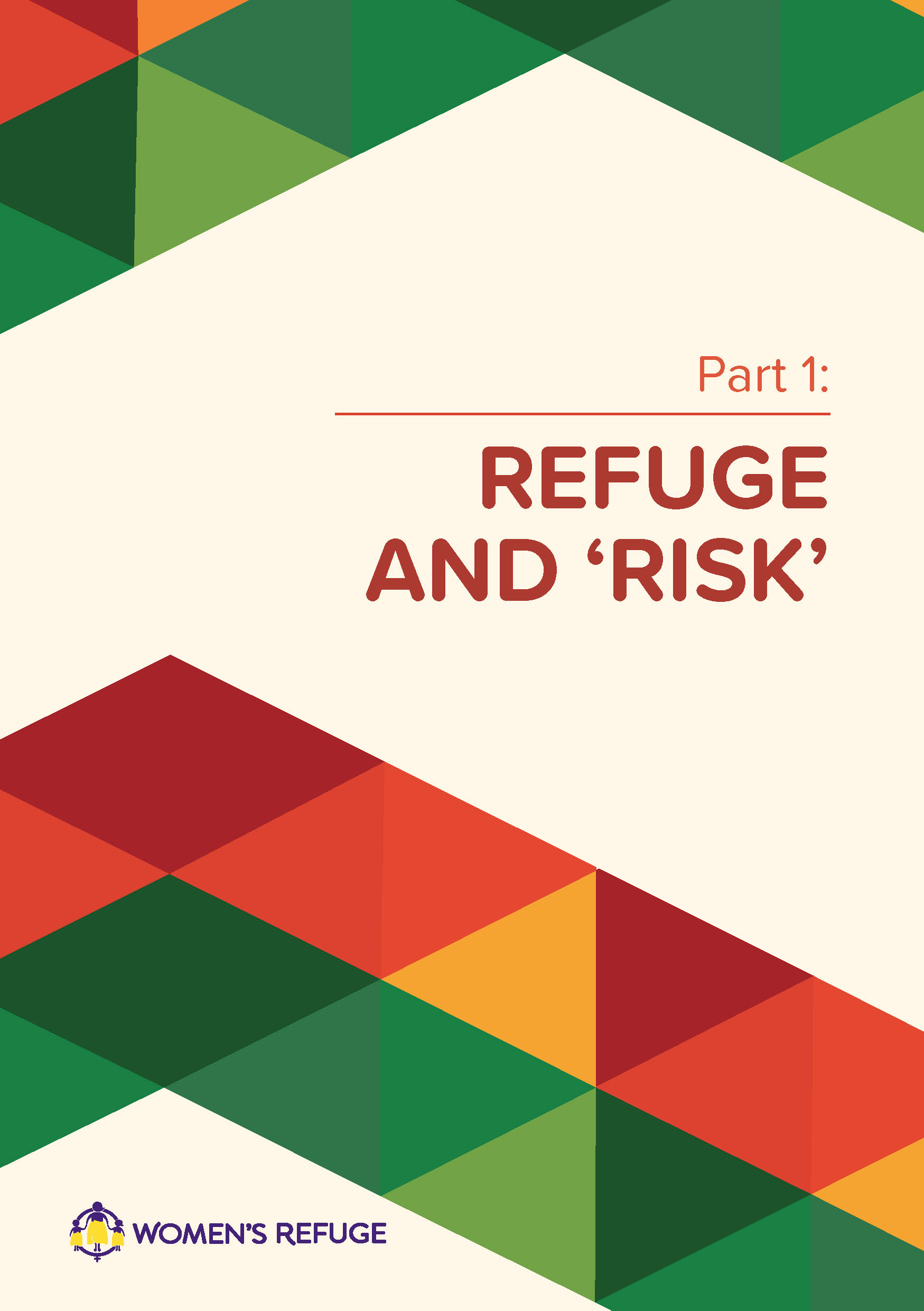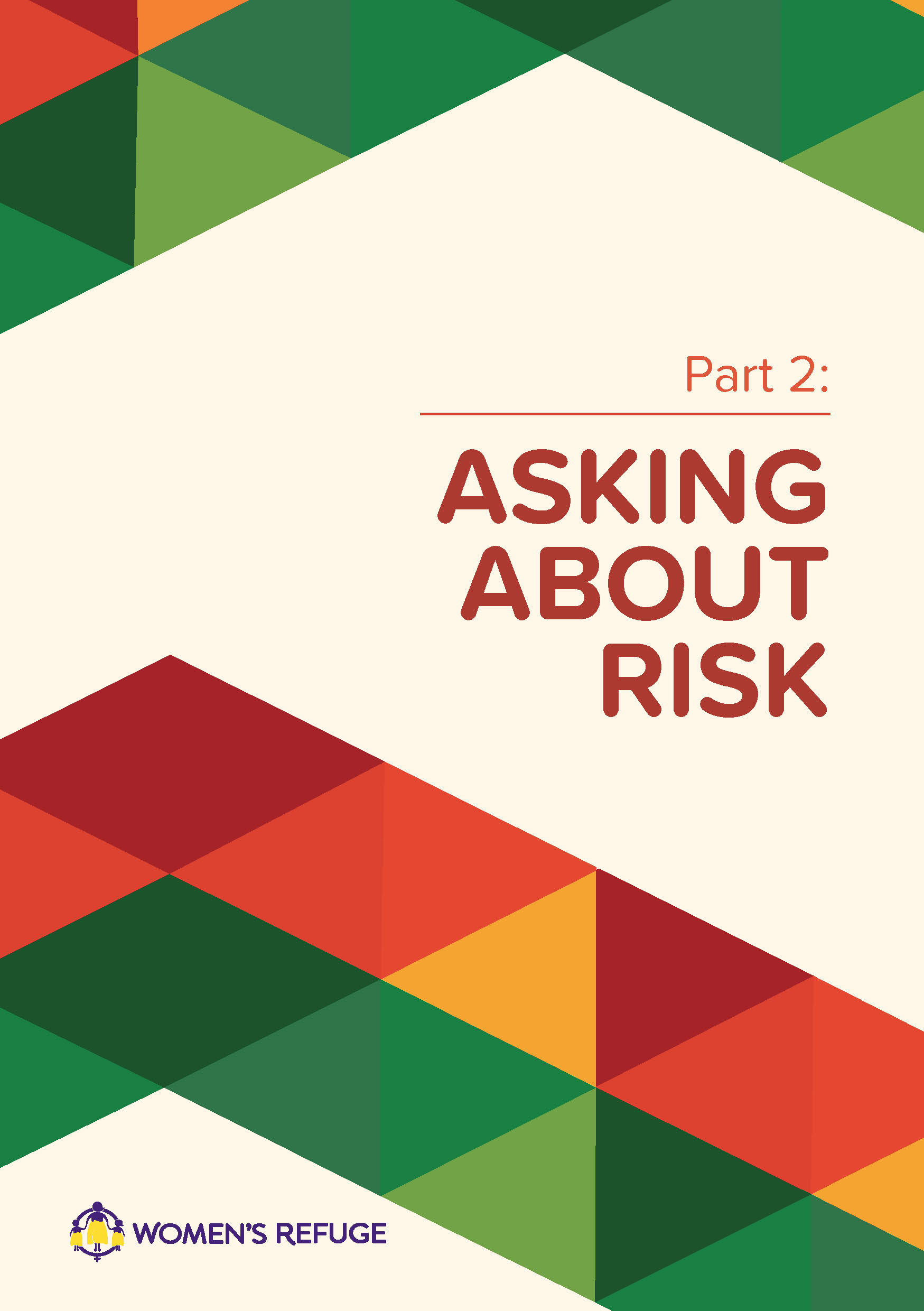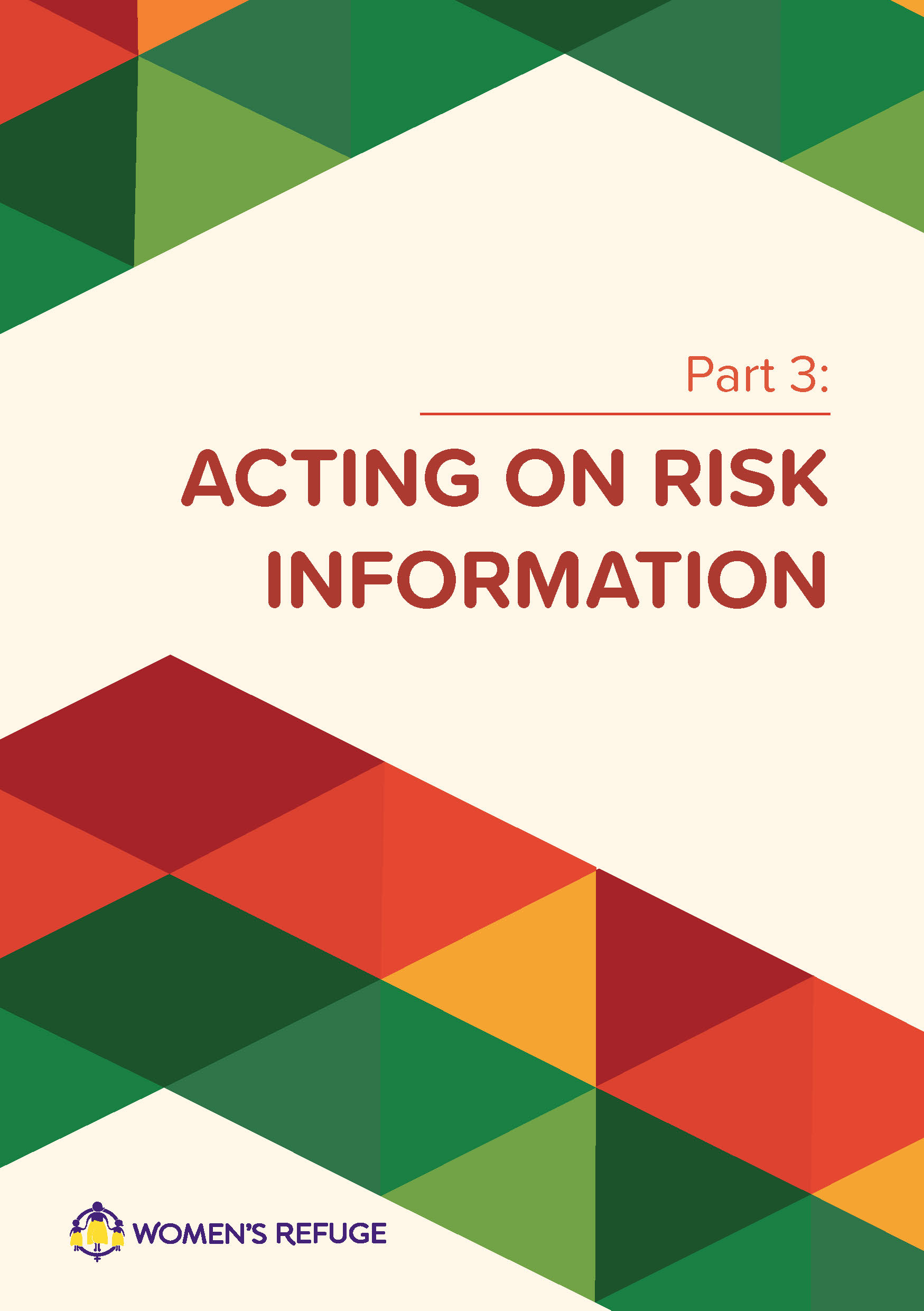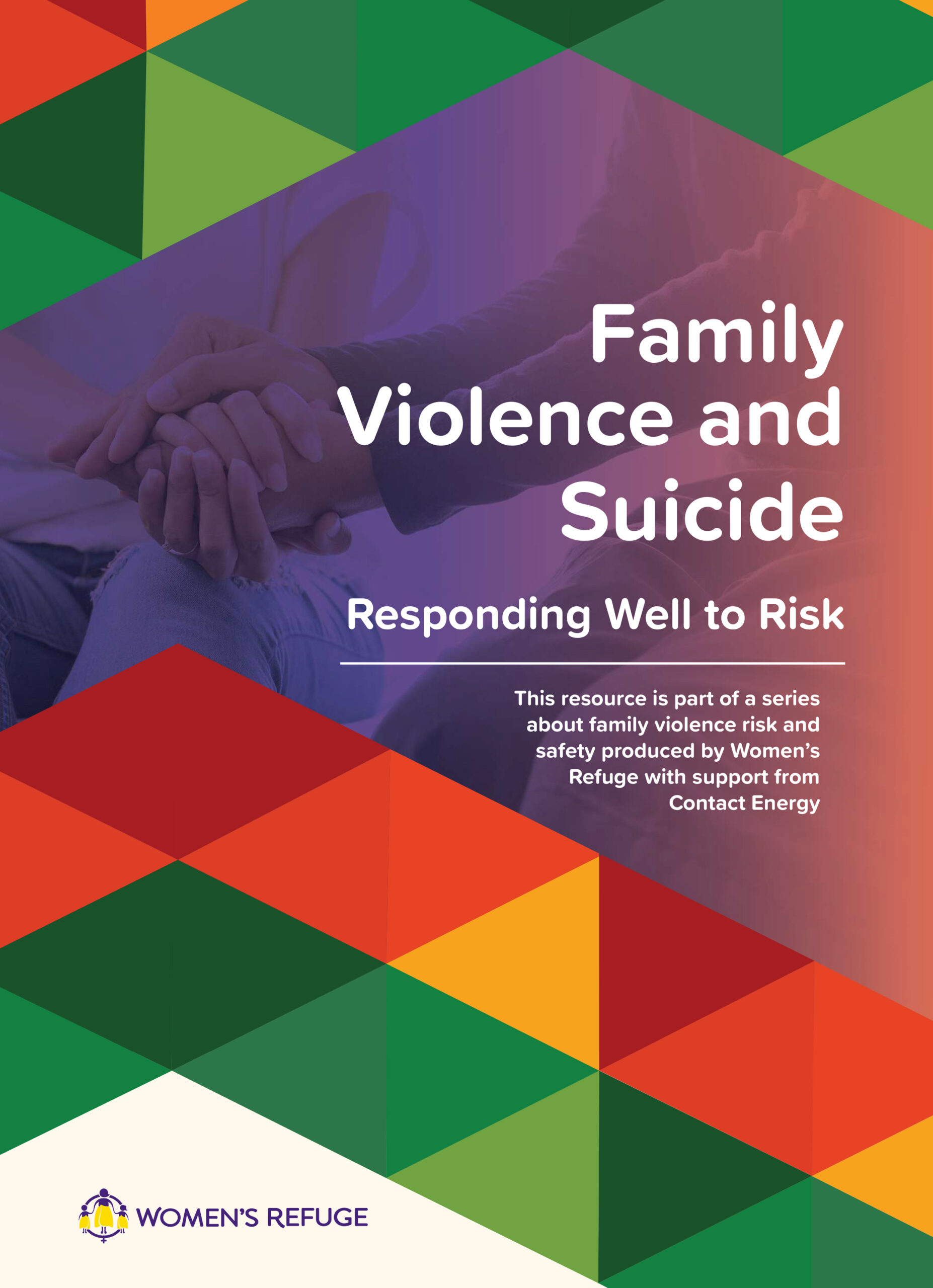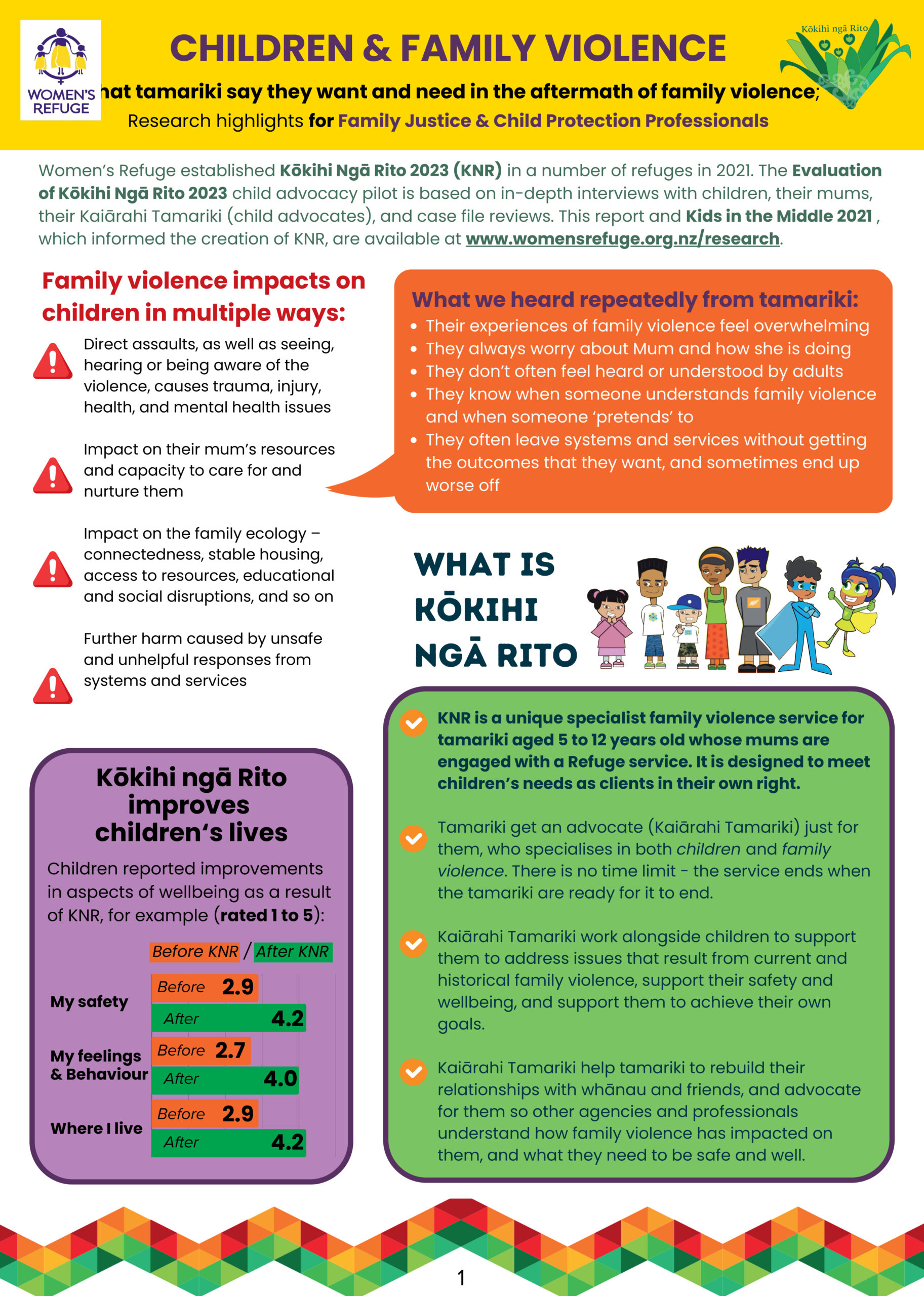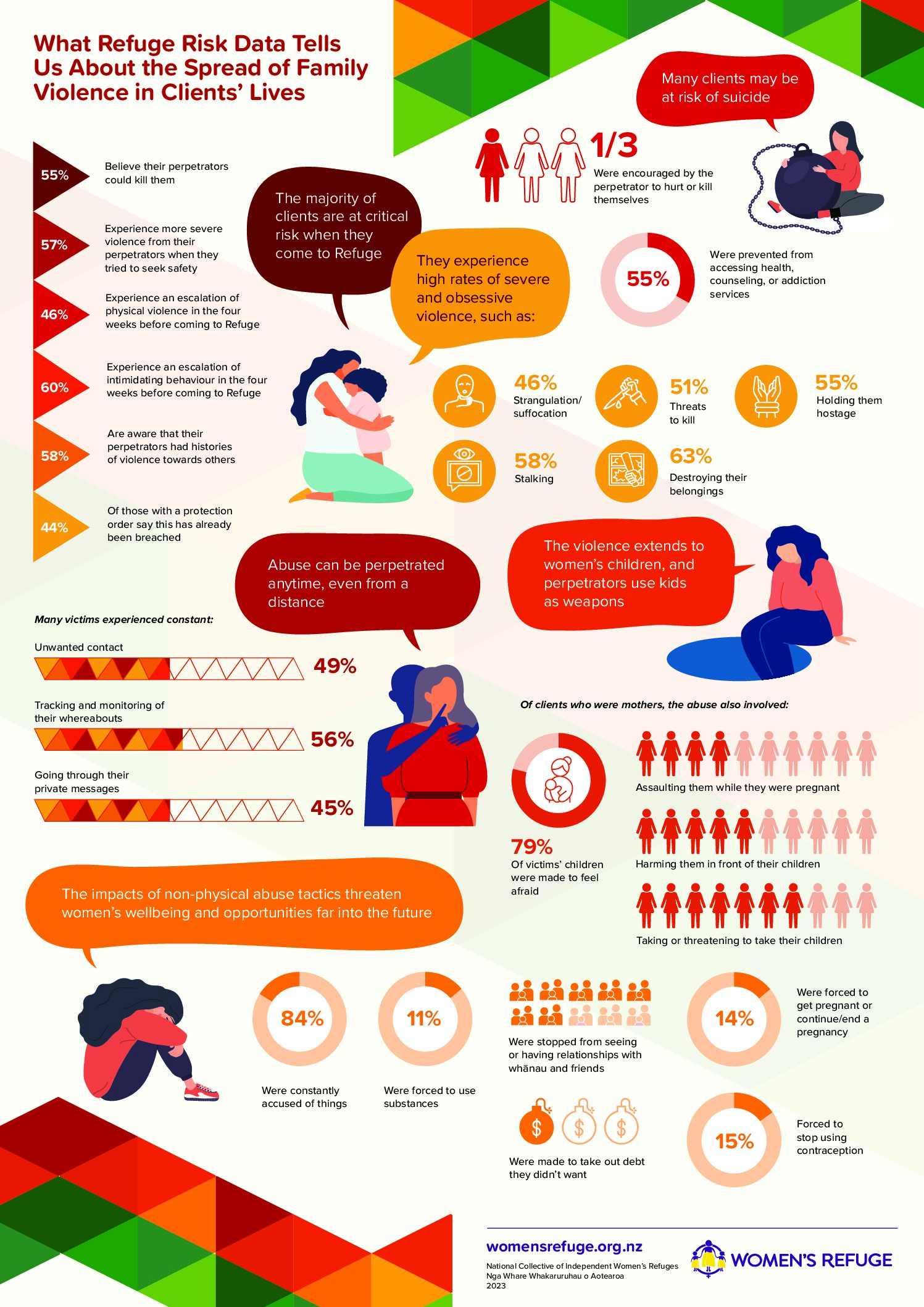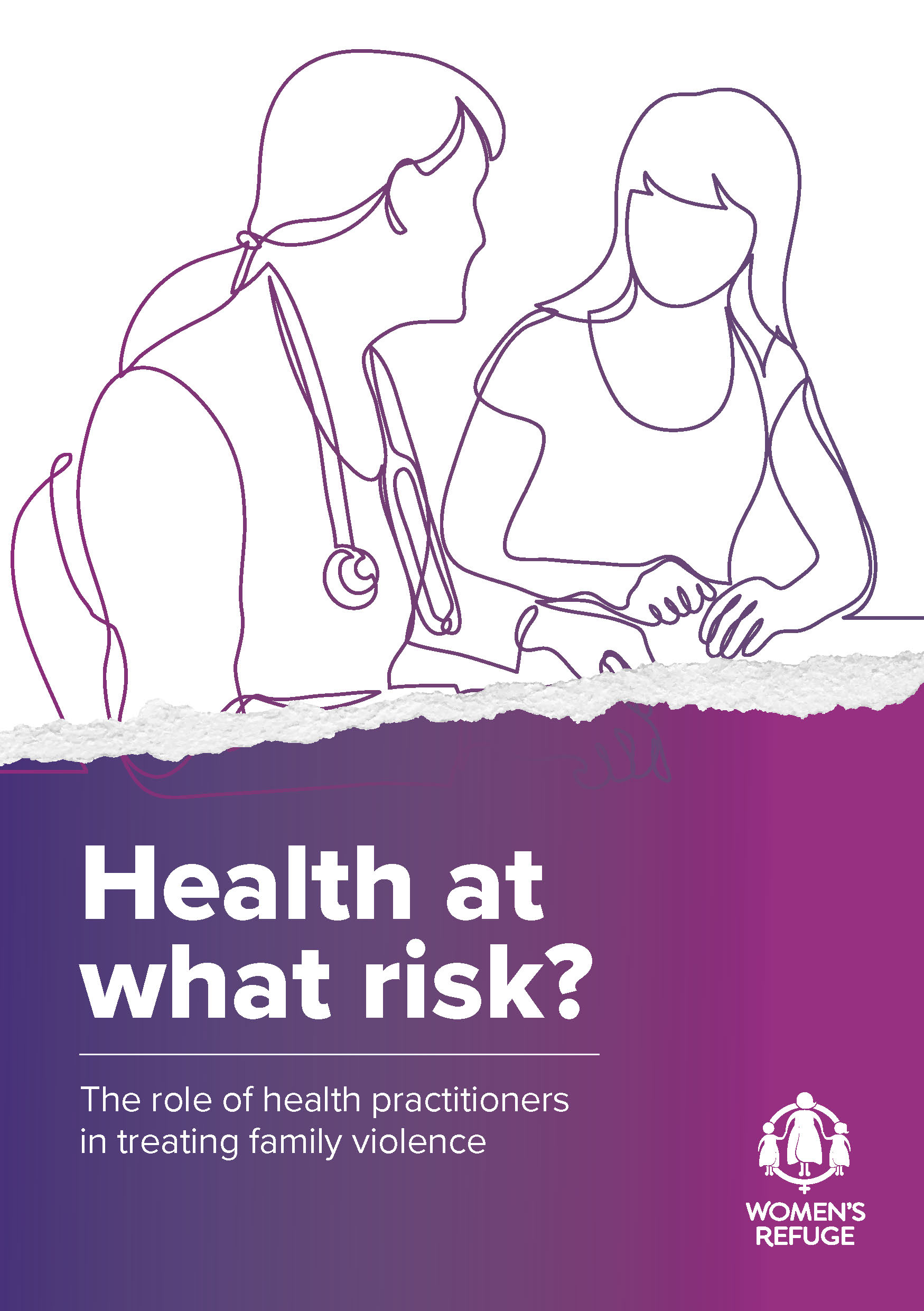We focus on the experiences of Women’s Refuge clients as well as other victims, and we understand that victims are the best experts of their own realities. Our research is also informed by our frontline kaimahi and by other research in Aotearoa and worldwide.
We analyse and interpret victims’ experiences with a specialist family violence, feminist, and Te Tiriti-based lens. Our research methods and reports aim to uphold the dignity and mana of victim-survivors, and improve their safety and wellbeing.
Below you will find research reports and resources designed to make our research more accessible and inform good practice with victim-survivors and their whānau.
We regularly make policy submissions based on our research and the specialist knowledge within our workforce.




